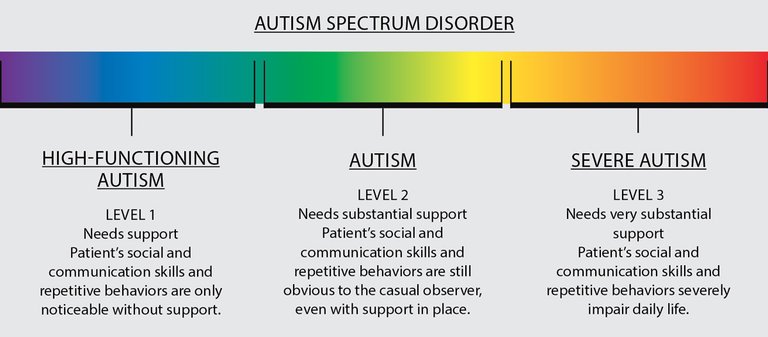ASD in the media
More children will be diagnosed with autism this year than with AIDS, diabetes & cancer combined.
According to studies, one in 45 children is born with an ASD. In America, around 3,5 million people are diagnosed. If you ask most people what they think about ASD, they'll think of Sheldon Cooper from Big Bang Theory or Raymond from Rain Man. I think both are an unprecise example for autism, especially for the high-functioning end of the spectrum, or commonly referred to as Aspergers.
Raymond is on the far end of the spectrum and is a low-functioning autistic savant, which means that their symptoms that are correlated to Autism are significantly stronger than in high-functioning autists who are often able to hide their autism in public. However, they usually show exceptional talent in subjects that revovle around patterns and logic like maths and music. Such cases are relatively rare.
Sheldon Cooper, while displaying some signs of autism is neither an accurate description. While it stays true to many signs like the lack of social awareness and avoidance of physical contact, it overlooks the negative side about autism to stay true to its comedic nature.
The Autism Spectrum
The symptoms and their intensity can vary wildly and no two autists are alike, just like every other person. Whilst some cases can involve major life-inhibiting symptoms like unwillingness to verbalize, self injury, memory impairment and freqeuent meltdowns, it is justified to assume that most autistic are rather high-functioning. That often doesn't mean that they won't need financial, emotional and psychological support, but many are still able to live on their own rather succesfully.
Due to the lacking awareness about ASD, many high-functioning autist have insufficient support since they are not suspected to be on the spectrum. In the last decade, the occurence of ASD has more than doubled, and this can partly be credited to the progress in information and data.
Even though some do not want an official diagnosis to avoid problems at their workplace, in schools and other reasons, it can help alleviate care cost by up to 2/3 and may offer benefits for the disabled.
ASD in society
The picture painted in the media combined with the social difficulties an autist commonly has results in psychological and emotional isolation. 35% are unemployed, 14% have suicidal tendencies, 28% injure themselves. They struggle to keep friend- and relationships, employment, mental health, and often get as much in conflict with themselves as they do with others.
“The way we look at our children and their limitations is precisely the way they will feel about themselves. We set the examples, and they learn by taking our cue from us,”
-- Amalia Starr
Thanks for reading!
Inside the Aspie Brain; Why social scenarios are so difficult


Congratulations @kekssideoflife! You have completed some achievement on Steemit and have been rewarded with new badge(s) :
Click on any badge to view your own Board of Honor on SteemitBoard.
For more information about SteemitBoard, click here
If you no longer want to receive notifications, reply to this comment with the word
STOP